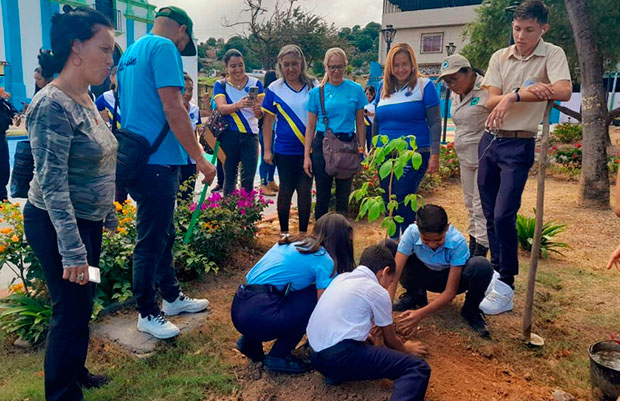by Marvin Ramírez
In Nicaragua, the month of June blossoms with two celebrations that invite us to profound reflection on the soul and roots: Teachers’ Day, celebrated on June 29, and Tree Day, commemorated on the last Friday of the month. Both dates, although distinct in essence, share a vital truth: without them, knowledge and life itself would have no sustenance.
After the first lessons we learn at home—that babble of love, boundaries, and customs—it is the teacher who takes over. With chalk, patience, and voice, they open paths that do not end at school, but that accompany us forever. The teacher not only teaches us to read, write, or add: they also teach us to imagine, to question, to think. They are artisans of the spirit. Celebrating teachers in Nicaragua also means paying tribute to those who, even with limited resources, never leave the classroom. They are guardians of popular and formal wisdom, of living history, and of the future yet to be written. In the towns, cities, and rural areas, their voice resonates as an echo of justice, education, and example.
And alongside this essential figure is the tree, another symbol of life and generosity. On Arbor Day, the country slows down to remember its silent vitality. Generations rest under its shade; families feed on its fruit; homes are built from its wood. Yet, how much do we care for it? The great Rubén Darío, that universal poet from Matagalpa, captured the sensitivity of trees with painful beauty in his poem “Lo Fatal”:
“Blessed is the tree, which is barely sensitive,
and even more so the hard stone, because it no longer feels…”
In these verses, Darío not only reveals the fragility of living beings, but also the enormous dignity of a tree: it suffers, but gives. It lives, but remains silent. And often, it falls due to our need—economic or practical—without us measuring the loss.
In these times when climate change and deforestation threaten the country’s biodiversity, Arbor Day is more than a reminder; it is an alarm. We must plant more trees than we cut down. We must teach—here comes the teacher again—respect for the earth as part of the daily curriculum.
Thus, June becomes a month of double homage: to the one who teaches and to the one who sustains life. Teachers and trees share an endearing quality: both are planted, nurtured, and leave a mark. Both are roots and branches of the soul of Nicaragua. And both remind us, as Darío wrote, that being mindful also means knowing how to care for what cares for us.
Celebrating them is not a symbolic gesture. It is an act of justice, love, and conscience.



